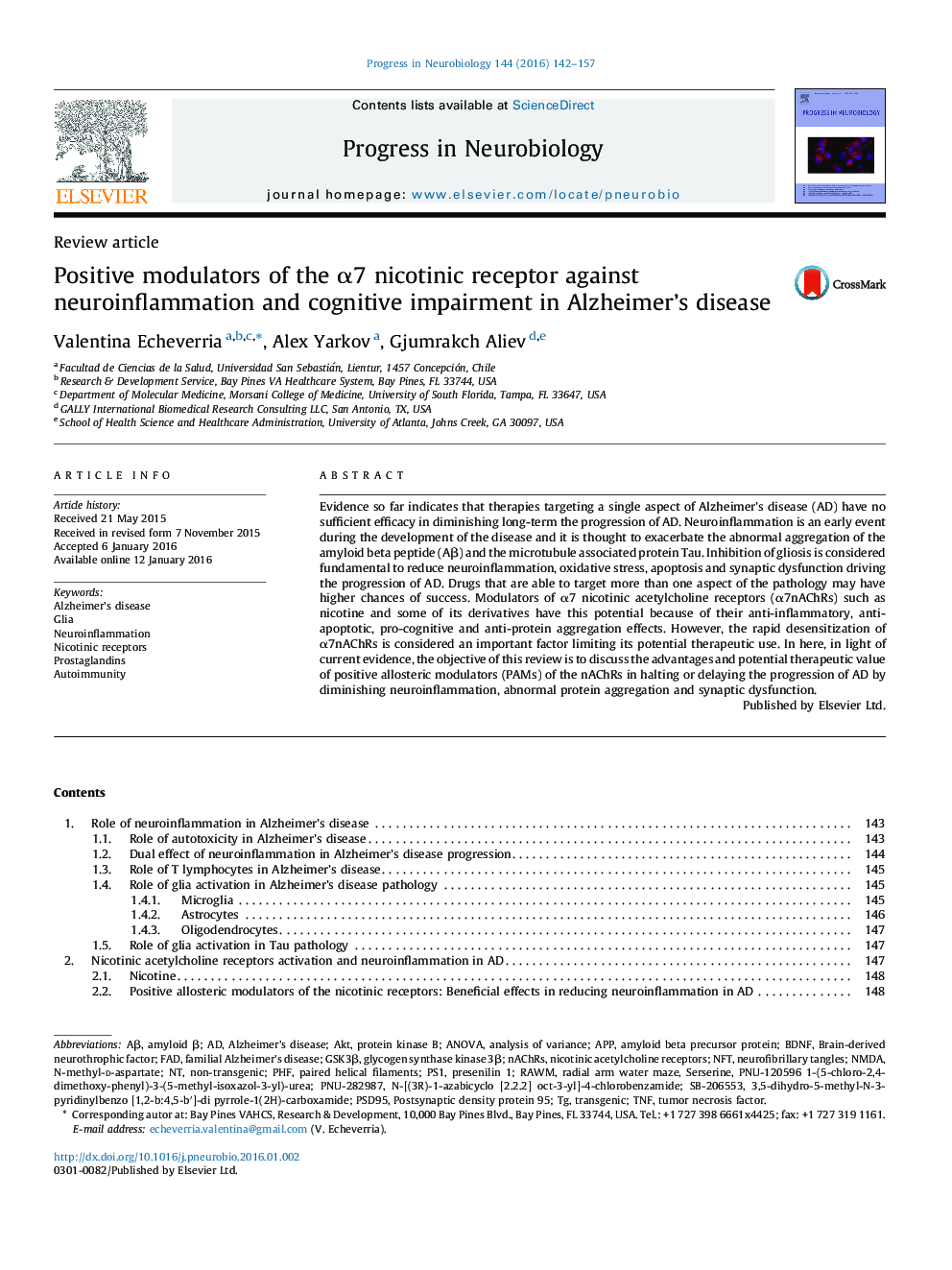| Article ID | Journal | Published Year | Pages | File Type |
|---|---|---|---|---|
| 4353215 | Progress in Neurobiology | 2016 | 16 Pages |
•Positive modulation of nicotinic receptors can decrease AD neuropathology.•Stimulation of nicotinic receptors by cotinine may reduce neuroinflammation in AD.•Cotinine by targeting neuroinflammation may delay or halt AD progression.
Evidence so far indicates that therapies targeting a single aspect of Alzheimer's disease (AD) have no sufficient efficacy in diminishing long-term the progression of AD. Neuroinflammation is an early event during the development of the disease and it is thought to exacerbate the abnormal aggregation of the amyloid beta peptide (Aβ) and the microtubule associated protein Tau. Inhibition of gliosis is considered fundamental to reduce neuroinflammation, oxidative stress, apoptosis and synaptic dysfunction driving the progression of AD. Drugs that are able to target more than one aspect of the pathology may have higher chances of success. Modulators of α7 nicotinic acetylcholine receptors (α7nAChRs) such as nicotine and some of its derivatives have this potential because of their anti-inflammatory, anti-apoptotic, pro-cognitive and anti-protein aggregation effects. However, the rapid desensitization of α7nAChRs is considered an important factor limiting its potential therapeutic use. In here, in light of current evidence, the objective of this review is to discuss the advantages and potential therapeutic value of positive allosteric modulators (PAMs) of the nAChRs in halting or delaying the progression of AD by diminishing neuroinflammation, abnormal protein aggregation and synaptic dysfunction.
